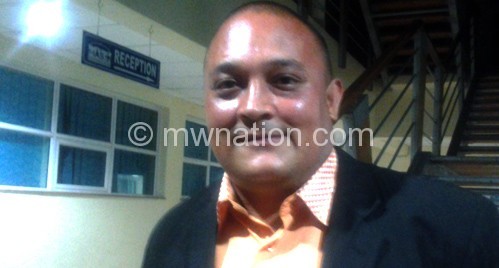Babu Khamisa bounces back

With May 20 Tripartite Elections around the corner, Babu Khamisa, who served Thyolo East Constituency between 2004 and 2009 has bounced back to politics.
Khamisa told The Nation in an interview yesterday that he has decided to ressurect his political career after what he termed as pressure from constituents.
According to Khamisa, people want him to stand again so that he continues with development work he initiated when was legislator for the area.
“I want to proceed with development projects I started when I was in the august House.
“There area is underdeveloped since I left politics in 2009 to pave the way for Peter Mutharika who wanted to contest as parliamentarian for the area,” he said.
Khamisa, who is expected to represent the People’s Party (PP) on May 20 polls, added that he has no regrets over leaving the DPP, the party he represented in a 2004 by-election after Bingu wa Mutharika won the presidency.
“I have realised that many people need help in the area, hence my standing.
“Currently, I am working on several projects such as looking for orphans, educational, water and sanitation projects, among others,” said Khamisa.

He said the Khamisa family is already initiating new projects in the area following its policy of assisting the needy.
“My standing on the PP ticket is not by mistake. I also believe in giving and assisting the needy just like President Joyce Banda and the PP are doing,” he said.
Meanwhile, various aspirants under political parties started collecting nominations forms from the Centre for Multiparty Democracy (CMD) offices while independents from district councils on Thursday last week.
According to MEC presentation of nomination papers and fees will be held between February 10 and 14. Presidential candidates will present their forms at the Comesa Hall in Blantyre.
Malawi has had no councillors since 2005, forcing governance experts and western donors to brand Lilongwe as undemocratic.
Their arguments were that development initiatives should be handled by councillors and not lawmakers.





